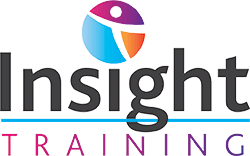Financial Planning Careers: Could You Thrive in Finance?

They say money makes the world go ‘round, so there’s no question that financial planning is an influential yet demanding career.
If you’ve ever watched a family member struggling under a mountain of debt, or heard a friend lament over never being able to save enough for a house deposit, you can certainly understand the value of the financial planning profession.
While we often imagine them at the helm of profitable businesses, or in government offices creating national budgets, financial planners work with people from all walks of life and from all kinds of financial backgrounds.
It’s a profession that requires a high level of skill, and a passion for helping people and businesses alike. The role of a financial planner is broad. They don’t just formulate financial plans; they educate, assist and offer financial advice. It’s a job where you can go from crunching numbers one minute, to empathising with a client’s situation the next.
If you’re someone with a natural aptitude for handling money, the idea of pursuing a career in financial planning might have already crossed your mind. And since the industry is so vast, no matter where your interests lie, there’s going to be a role in financial planning for you.
However, it can be confusing trying to wade through all the information you need on your own, and you might feel ill-prepared to take the next step with so many unanswered questions, like:
This guide will analyse each of these in six chapters to help inform your decision, and give you the industry statistics and advice you need to begin your career journey as a financial planner.
You’ll also hear advice and industry insights from highly experienced Superannuation Manager and Financial Planner at Suttie Financial Group, Mr Roland Blazevic.
Ready to take your passion to the next level?
Let’s dive in.
1. THE BENEFITS OF A CAREER AS A FINANCIAL PLANNER
From the lucrative salary to the emotional rewards, discover the perks of being a financial planner.
2. COULD YOU THRIVE IN A FINANCIAL PLANNING CAREER?
Discover the skills and traits of financial planners, and the challenges they overcome.
3. CAN YOU STILL BE A FINANCIAL PLANNER IF YOU DON’T LIKE CLIENT-FACING WORK?
Hint: there’s a perfect role for you.
4. HOW TO BECOME A FINANCIAL PLANNER
From the FASEA Exam, to work experience, to the Code of Ethics standard. There’s a lot to unpack here.
5. OTHER CAREERS IN FINANCE
With an industry this vast, you can have your pick of a variety of careers. Find out which could suit you best.
6. FINANCIAL PLANNING QUALIFICATIONS
Degrees, diplomas and bridging knowledge — oh my! These are the new education standards for financial planners.
But First: What is a Financial Planner?
Financial planners are qualified professionals who work closely with individuals and organisations to create long-term financial goals, and assist clients with achieving those.
The very crux of the role is helping people manage their money. However, a financial planner can do this in a variety of ways:
A financial planner may specialise in one or many of these things, but no matter what, a good one will always keep their client’s goals, risk tolerance and financial situation at the forefront of any planning.
Because of this, they’ll normally begin by collecting a wealth of information on their client’s financial situation, which may include a questionnaire. To help clients achieve their financial goals, a big part of a financial planner’s role includes educating. This could be anything from the basics of budgeting, to translating complex financial information into understandable actions.
What’s the difference between a financial planner vs. financial advisor?
In the Australian financial industry, the terms “financial planner” and “financial advisor” are often used interchangeably. While this isn’t necessarily wrong, it’s also not entirely correct.
Broadly, the definition of financial advisor is any professional who can help someone manage their financial situation to some extent. For example, an accountant is a kind of financial advisor.
A financial planner is a kind of financial advisor, but they specialise in the area of (you guessed it) financial planning.
CHAPTER ONE
The Benefits of Being a Financial Planner
There are many rewards, both material and emotional, to pursuing a career in financial planning.
First and foremost, it’s a lucrative career and you’ll be very well compensated for your hard work.
A successful financial planner has practically unlimited earning potential because income is based on the amount of recurring or new business prospects each year. Depending on where you work, your salary will be either fee-based, commission-based or a combination of both.
It’s also a stable industry with low unemployment, and because of how vast the industry is, there’s a variety of places you can choose to work. From young, modern boutique firms to highly regarded national brands, or you could even go out on your own as an independent financial planner.
It’s Not All About The Money
The emotional rewards of helping individuals, families and businesses manage their finances isn’t dissimilar to any other career where you can help people turn their lives around.
While they say money can’t buy happiness, financial stress can lead to a variety of emotional and physical health problems, including anxiety, depression and turning to unhealthy coping mechanisms such as alcohol.
Through a career in financial planning, you’ll have the capacity to help individuals, families and businesses relieve their financial burdens and make wiser investment decisions.
Imagine being able to help a young couple save a deposit for their first home: their elation and happiness would be caused, in part, by you. It’s a rewarding feeling to assist others with a leg up in life – financial or otherwise! Or imagine helping a parent manage their finances as they go through a divorce. By easing the burden of their new – perhaps costly – financial situation, they’ll have the emotional energy they need to handle everything else going on.
It’s an amazing thing to empower people to take control of their lives through financial coaching.
This is something Roland Blazevic, Superannuation Manager and Financial Planner at Suttie Financial Group, knows well. Having been in the finance industry for over 30 years, his passion for helping people achieve their retirement goals led him from accounting into financial planning. He says the greatest reward is, “helping clients achieve or get close to their financial goals.”
“Their satisfaction and appreciation is personally rewarding.”
“Most clients don’t really understand what is involved in providing financial planning advice, including considering all the financial planning regulations which all planners need to deal with, as well as the recent education requirements that need to be undertaken by existing and new financial advisers,” he says.
But the hard work and stress of keeping up with the industry is made worth it by your clients’ successes.
Financial Planning Statistics
CHAPTER TWO
Could You Thrive in a Financial Planning Career?
Financial Planning Skills
- An outgoing personality
- Effective written and verbal communication skills
- Excellent ability to listen
- Ability to empathise with and understand client’s unique needs
- Ability to work under pressure
- Networking and relationship building skills
- Persistence and passion for the job
As a financial planner, soft skills like communication and empathy go hand in hand with technical skills like analytics and mathematics, in order to provide the best client care. Your industry reputation actually depends on the successes of your clients. So, being invested in their unique situations, by listening, understanding and empathising with them, is crucial for the job.
Roland also says, “The passion to understand and help people, from all sorts of backgrounds and financial situations is an important trait to have. In addition, the ability to learn from all past experiences and the drive to get better at what you do.”
The Challenges of Financial Planning
It’s a challenging industry, especially when first starting out. You’ll need to be prepared for everything that comes your way if you want to succeed.
Some of the challenges in the role include:
Building and maintaining a strong client base
How will you attract and retain clients? Your relationship with each individual is paramount, and you’ll need to stay connected to all of them.
Staying on top of changing financial markets and products
That includes sorting fact from misinformation as new trends emerge. As if that wasn’t enough of a challenge, you also need to know the longstanding data that is accurate and reliable.
Handling client emotions and expectations
Can you relate to your clients on an emotional level? You might be a logical thinker, but your client’s likely won’t be. For their happiness, you need to ensure they have the right expectations.
A Financial Planning Expert Reveals the Traits You Need to Succeed
Think you’ve got what it takes? Let’s take a deeper dive into all the challenges of being a financial planner, and explore the skills that will help you overcome them. Roland also has plenty of great tips for succeeding in the industry, and they’re all here.
CHAPTER THREE
Can You Still Be a Financial Planner if You Don’t Like Client-facing Work?
The biggest part of a financial planner’s role is developing and maintaining positive relationships with their clients, and assisting them with reaching their unique goals. However, not everyone in finance is a fan of networking, and there are certainly roles for people who’d just prefer to dive into the technical end.
If you’re someone who loves the mathematical side of things, with a passion for analytics and researching financial products and markets, para-planning is a fantastic option. Para-planners work closely with financial planners, however they handle the technical and administrative duties so the financial planners have more time to dedicate to clients.
Para-planning is also a great way to get your foot in the door of the finance industry. Without the pressures of client-facing work, you’ll be able to develop and hone the technical skills you’ll need to be successful as a financial planner. You’ll have chances to network with people in the industry, giving you a better chance of landing a full-time financial planning role if that’s what your goal is.
What is Para-planning? Your Complete Guide
Para-planners are the administrative backbone of many larger financial planning companies. But don’t be mistaken — para-planners aren’t administration assistants. Discover their many responsibilities, along with industry statistics and how to become one.
CHAPTER FOUR
How to Become a Financial Adviser or Planner
In an industry as large and diverse as financial services, where do you start? This could be the first or hundredth time you’ve started exploring careers in financial planning.
It’s not as simple as knowing you’d like to become a financial planner. There are education requirements you need to meet, a Code of Ethics Standard, the FASEA exam and a professional year of work experience.
How to Become a Financial Adviser
Keen to know more about how you can become a fully-fledged financial advisor or planner? Get across the new requirements and how to pass the CFP exam with flying colours.
Learn More
CHAPTER FIVE
Other Careers in Finance
The finance industry is incredibly vast and there’s a job for practically any interest you could have when it comes to money. From working with clients on a personal level, to corporate finance, to overseeing investment portfolios. There are a lot of places to begin your career – or even move into later in your career for a new challenge.
Here are some of the top careers you might be interested in:
Financial Analyst
Financial Advisor
Accountant
Bank Teller
Asset Manager
Portfolio Manager
Average salaries for these jobs range from $44,137 to $151,000.
Seven Different Careers in Finance
The financial field of work offers a variety of career paths that goes beyond simply managing money. Discover the responsibilities of each of these career paths, along with their average salaries.
CHAPTER SIX
Financial Planning Qualifications
When it comes to qualifications, there are actually quite a few financial planning courses that will qualify you to work in the profession, but the one you need depends on your situation.
As of January 1st 2019, FASEA introduced a new education standard for both new and existing financial planners. While existing professionals have until January 1st 2026 to meet the new standards, new entrants must complete either:
If you’re just looking to dip a toe in the water before diving in, there are a number of financial planning courses online, both free and paid. By getting an insight into what financial planners do and building foundational knowledge, you’ll be able to make a confident decision about whether it’s the right career path for you.
Free vs. Paid Financial Planning Courses: The Difference Explained
They say the best things in life are free, but does that count for financial planning courses? Find out the pros and cons of free and paid courses.
Browse Finance Results
Diploma of Nursing (SA and WA Only) HLT54121
Build a meaningful career that makes a difference with the HLT54121 Diploma of Nursing. This nationally recognised qualification provides the essential skills, knowledge, and practical training needed to become a qualified Enrolled Nurse in Australia....




Certificate IV in Building and Construction (Building) (VIC Only) CPC40120
If you are an aspiring or working tradesperson, here is your foundation for success. This is your first step towards starting your own building business and preparing for the builders registration. We understand that you could be a busy tradie by day,...


Graduate Diploma in Management
The Graduate Diploma in Management is an online postgraduate qualification that is ideal for busy senior managers, with a potential entry pathway through any of our Graduate Certificates and study that is highly supported, fits into your schedule, and...


Graduate Certificate in Management
The Graduate Certificate in Management is an online postgraduate qualification that is designed for newer and ambitious professionals, with entry possible through management experience alone and a study structure that easily accommodates full-time work...


Diploma of Building and Construction (Building) (VIC Only) CPC50220
Prepare for registration as a Builder with the Diploma of Building and Construction (Building) (CPC50210) Gain the skills & knowledge to run your own business Study when it suits you – online & on campus options available...


Certificate IV in Plumbing and Services (VIC ONLY) CPC40920
This course covers common skills for the plumbing industry as well as specialist streams relevant to gasfitting, drainage, sewerage, roof drainage and more....


Building Leadership Programme (VIC ONLY) CPC40110 ,CPC502110
BAA is proudly partnered with Victoria University to offer our students higher education opportunities. Whether students are after an alternative way to gain entry into a degree, or simply want to try out a study path so they can confirm their longer-t...


Bachelor of Dance Education (NSW Only)
The Bachelor of Dance Education is a unique specialist professional qualification and is Australia’s first–being delivered through ACPE! Units are provided by highly qualified and experienced professionals, empowering you with all the knowledge and ski...


Bachelor of Education (Physical & Health Education) (NSW Only)
The Bachelor of Education (Physical & Health Education) incorporates units in movement and health as well as curriculum and pedagogical studies, equipping you with the requisite skills for entering the teaching profession. If you are keen to pursue...


Associate Degree of Sport Business (NSW Only)
Get a higher education qualification in two years when studying full-time! Based on the Bachelor of Sport Business in terms of content, the Associate Degree of Sport Business offers students the opportunity to get into the workforce quicker or alternat...


Bachelor of Dance Practice (NSW Only)
The Bachelor of Dance Practice is a specialised degree that will equip you with the skills and experience to become a professional in the dance industry. The course develops artistry, choreography, performance, educational, business, and organisational...


Bachelor of Health Science (Exercise) (NSW Only)
The Bachelor of Health Science (Exercise) offers the perfect career path for those looking to enhance their knowledge and skills through further studies in physiotherapy, exercise physiology, and other health professions. You will come to understand ho...


Bachelor of Sports Coaching (Strength and Conditioning) (NSW Only)
To address the high demand for sport coaches and professionals in Australia, the Bachelor of Sport Coaching (Strength and Conditioning) is a specialist degree fostering the coaching, administrative, and professional skills necessary for a fulfilling ca...


Bachelor of Sport Business (Leadership)
Turn your passion for sport into a career by immersing yourself in a degree that will broaden your theoretical and technical knowledge, so that you are fully equipped fora management role within the sport industry. The Bachelor of Sport Business (Leade...


Certificate III in Fitness SIS30321
If you’re looking to begin your career in the fitness industry, studying the SIS30321 Certificate III in Fitness is the perfect qualification to get you started. Gain all the knowledge and skills you need to enter the industry as a Gym Instructor or Gr...


Personal Trainer Course SIS30321,SIS40221
Join the fitness industry as a Personal Trainer and turn your love for fitness into a rewarding career by graduating in both the SIS30321 Certificate III in Fitness & SIS40221 Certificate IV in Fitness. Enjoy the flexibility of being your own boss...


Certificate IV in Fitness SIS40221
Take the next step in your career and gain the qualification you need to become a Personal Trainer. If you currently work in the fitness industry as a Gym or Group Fitness Instructor, elevate yourself to the next level by studying the SIS40221 Certific...


Bachelor of Health Science (Naturopathy)
Naturopathy is a whole medical system combining theory (philosophy and principles) and practise that uses an array of natural therapies to support healing and maintain health. Naturopaths aim to treat the underlying causes of illness and disease. The c...


Bachelor of Health Science (Clinical Nutrition)
Clinical nutritionists integrate traditional food wisdom and current scientific evidence to motivate individuals and communities to eat well and live healthier lives. The Bachelor of Health Science (Clinical Nutrition) is supported by a strong underpin...


Certificate III in Individual Support (Ageing OR Disability) (Perth Only) CHC33021
If you have a passion for helping those most in need, this qualification is one way you can utilise your knowledge for the benefit of others. Package the Certificate III in Individual Support (Ageing or Disability) (CHC33021) to save time and gain know...









